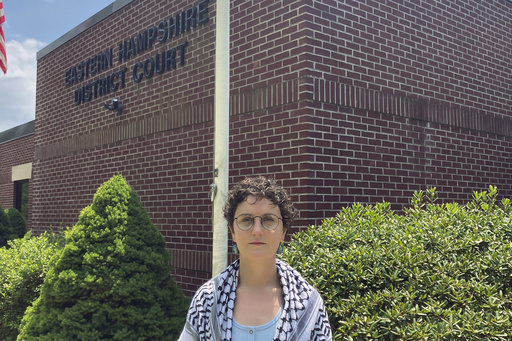In Amherst, Massachusetts, graduate student Annie McGrew finds herself entangled in legal proceedings and college conduct hearings following her arrest at a protest at the University of Massachusetts. This situation has disrupted her progress towards completing her dissertation in economics, causing her distress since she did not anticipate this response from the university administration.
During a series of pro-Palestinian tent encampment protests against the war in Gaza, around 3,200 individuals were arrested this spring at various campuses nationwide. While some colleges managed to resolve the demonstrations amicably, others resorted to involving law enforcement due to protesters’ refusal to disperse. Many of these cases are still pending, impacting the academic future of the students involved.
Some students remain resolute about their decision to protest despite the consequences, while others are grappling with post-arrest repercussions, contemplating their continued enrollment in college. The aftermath of the protests, including legal battles and academic uncertainties, has left many students questioning their educational pursuits and future aspirations.
These protests were not limited to specific types of universities, as public and private institutions of varying sizes and locations experienced similar demonstrations. As colleges prepare for potential future protests, discussions surrounding when to involve law enforcement and the lasting effects of past decisions on campus dynamics persist among administrators, faculty, and students.
Charges faced by protesters range from misdemeanors to more serious offenses, with some cases still under evaluation by prosecutors. In some instances, charges have been dismissed or not pursued further, underscoring the complexity and varied outcomes of the legal proceedings resulting from the protests.
The impact of these arrests extends beyond legal implications and into academic disruptions for the students involved. Many find themselves dealing with delayed degrees, interrupted studies, and emotional distress stemming from their involvement in the protests. Some have chosen to leave their current institutions in pursuit of their academic and personal aspirations elsewhere.
The use of law enforcement on campuses has sparked debate and criticism, with concerns raised about the handling of protests and the consequences faced by students. Colleges are now facing a reckoning over their responses to protests, with some institutions facing backlash from their communities for involving police in resolving campus demonstrations.
Moving forward, colleges are reevaluating their policies on protests and campus activities, with the aim of fostering a more inclusive and supportive environment for students to express their views and engage in activism. The long-term implications of the protests and subsequent arrests continue to shape the campus dynamics and future actions of college administrations in addressing student activism.



